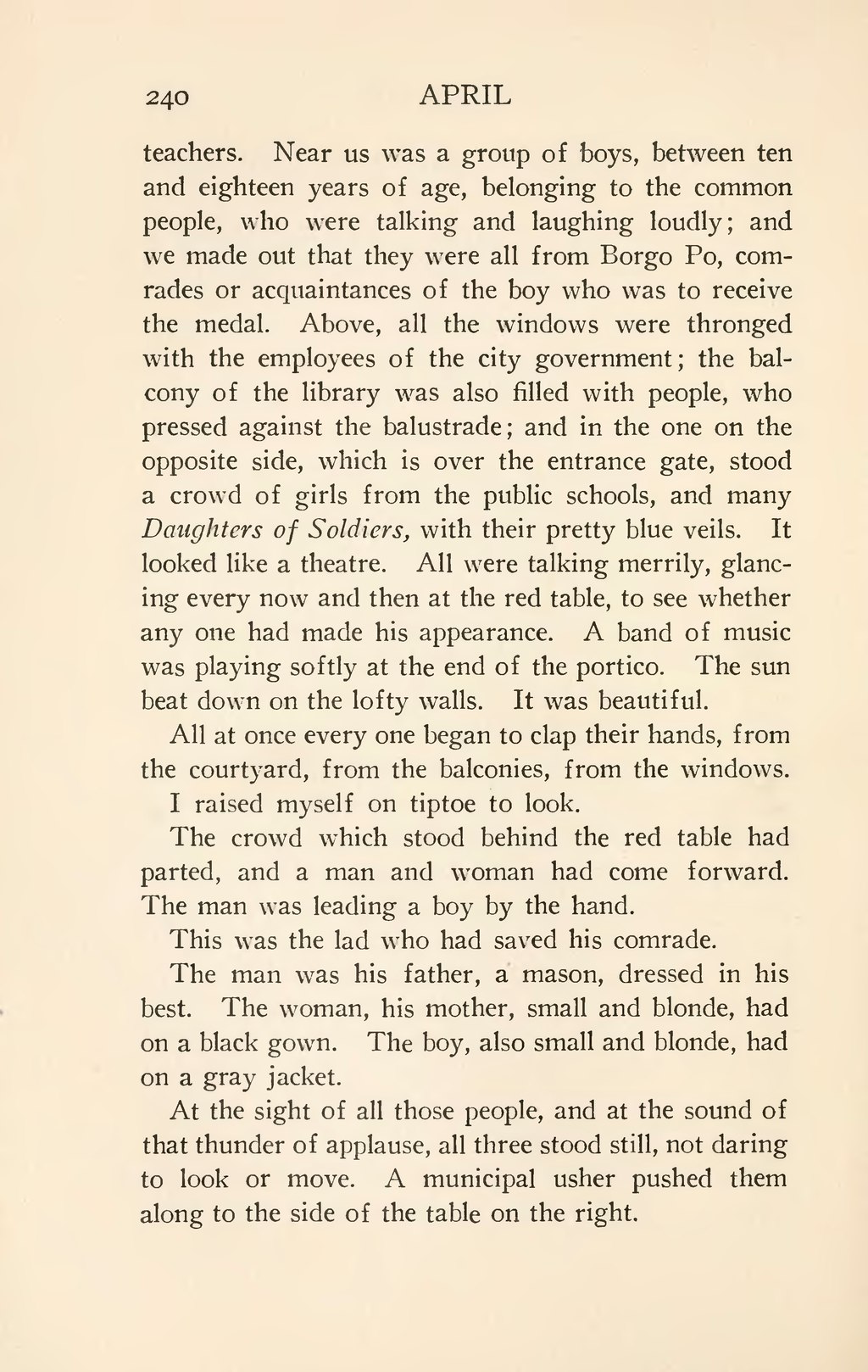teachers. Near us was a group of boys, between ten and eighteen years of age, belonging to the common people, who were talking and laughing loudly; and we made out that they were all from Borgo Po, comrades or acquaintances of the boy who was to receive the medal. Above, all the windows were thronged with the employees of the city government; the balcony of the library was also filled with people, who pressed against the balustrade; and in the one on the opposite side, which is over the entrance gate, stood a crowd of girls from the public schools, and many Daughters of Soldiers, with their pretty blue veils. It looked like a theatre. All were talking merrily, glancing every now and then at the red table, to see whether any one had made his appearance. A band of music was playing softly at the end of the portico. The sun beat down on the lofty walls. It was beautiful.
All at once every one began to clap their hands, from the courtyard, from the balconies, from the windows.
I raised myself on tiptoe to look.
The crowd which stood behind the red table had parted, and a man and woman had come forward. The man was leading a boy by the hand.
This was the lad who had saved his comrade.
The man was his father, a mason, dressed in his best. The woman, his mother, small and blonde, had on a black gown. The boy, also small and blonde, had on a gray jacket.
At the sight of all those people, and at the sound of that thunder of applause, all three stood still, not daring to look or move. A municipal usher pushed them along to the side of the table on the right.

